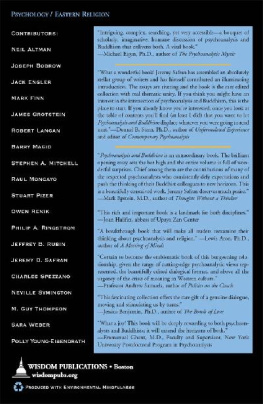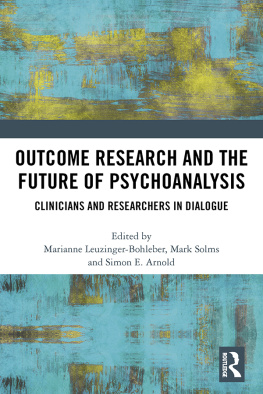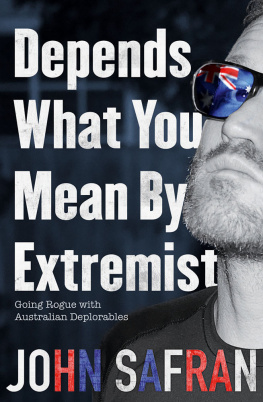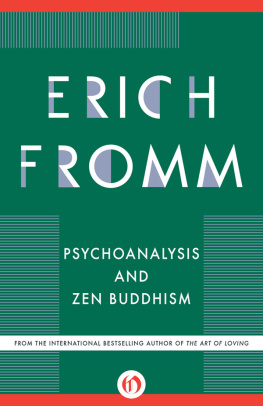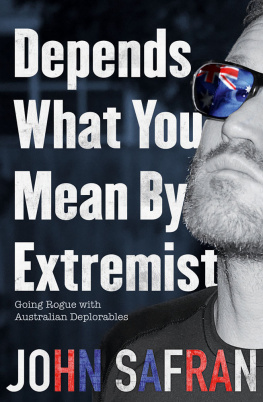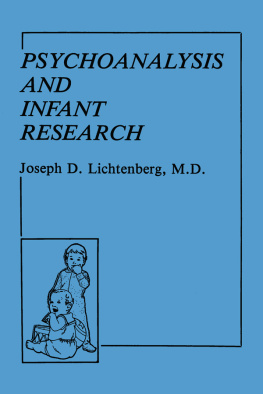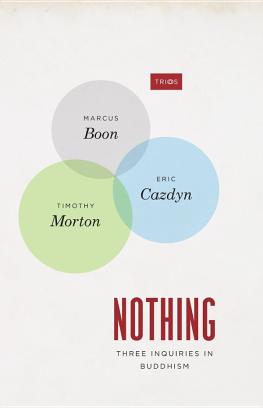PSYCHOANALYSIS
AND BUDDHISM
PSYCHOANALYSIS
AND BUDDHISM
An Unfolding Dialogue
E DITED BY J EREMY D. S AFRAN
Wisdom Publications
199 Elm Street
Somerville, MA 02144 USA
www.wisdompubs.org
2003 Jeremy D. Safran
All rights reserved.
No part of this book may be reproduced in any form or by any means, electronic or mechanical, including photography, recording, or by any information storage and retrieval system or technologies now known or later developed, without permission in writing from the publisher.
Library of Congress Cataloging-in-Publication Data
Safran, Jeremy D.
Psychoanalysis & Buddhism : an unfolding dialogue / edited by Jeremy D. Safran.1st Wisdom ed.
p. cm.
Includes bibliographical references and index.
ISBN 0-86171-342-7 (pbk. : alk. paper)
1. Buddhism and psychoanalysis. 2. BuddhismPsychology. I. Title: Psychoanalysis and Buddhism. II. Title
BF175.4.R44S24 2003
294.3 375 DC 21
2003000939
First edition
12 11 10 09 08
5 4
Chapter. 6: Your Ordinary Mind is adapted from material previously published in Ordinary Mind: Exploring the Common Ground of Zen and Psychotherapy (Boston: Wisdom Publications, 2002).
Wisdom Publications books are printed on acid-free paper and meet the guidelines for permanence and durability of the Production Guidelines for Book Longevity set by the Council on Library Resources.
Printed in the United States of America.
This book was produced with environmental mindfulness. We have elected to print this title on 30% PCW recycled paper. As a result, we have saved the following resources: 19 trees, 13 million BTUs of energy, 1, 635 lbs. of greenhouse gases, 6, 786 gallons of water, and 871 lbs. of solid waste. For more information, please visit our website, www.wisdompubs.org. This paper is also FSC certified. For more information, please www.fscus.org.
To Karma Thinley Rinpoche
To Zen Master Richard Shrobe
And to the memory of Stephen A. Mitchell
***
My Tibetan teacher, Karma Thinley Rinpoche, the fourth incarnation of the sixteenth century lama, Karma Thinley, once asked me, in his broken, heavily accented English: How does Western psychology treat nervousness? Why do you ask? I responded. Well, he replied, Ive always been a nervous person. Even when I was a little boy I was nervous, and I still am. Especially when I have to talk to large groups of people or to people I dont know, I get nervous. As was often the case with the questions that Karma Thinley asked me, I found myself drawing a complete blank. Part of it was the difficulty of trying to find the words to explain something to somebody whose grasp of English was limited, but there was another more important factor. On the face of it this was a simple question. But Karma Thinley was a highly respected lama, now in his sixties, who had spent years mastering the most sophisticated Tibetan Buddhist meditation techniques. Those who knew Karma Thinley considered him to be an enlightened being. In the West psychotherapists are increasingly turning to Buddhist meditation as a valuable treatment for a variety of problems including anxiety. Who was I to tell him how to be deal with anxiety? And how was it possible that Karma Thinley, with all of his experience meditating could still be troubled by such everyday concerns? How could an enlightened person be socially anxious? Was he really enlightened? What does it mean to be enlightened? My head swirled with all of these inchoate questions, and for a moment my mind stopped. I felt a sense of warmth coming from Karma Thinley and I felt warmly towards him. I felt young, soft, open and uncertain about everything I knew.
Jeremy Safran
C ONTENTS
First I would like to thank Karma Thinley Rinpoche and Zen Master Richard Shrobe who were both there for me during difficult times in my life and who taught me the lessons of simplicity, ordinariness, constancy and compassion. I would also like to thank Philip Bromberg for his faith in me, for his guidance, and for his encouragement. I am particularly indebted to the late Stephen Mitchell for his intellectual stimulation, openness, and infectious enthusiasm. His support of this project in its early stages played a critical role in helping it to materialize. To Neil Altman, Joseph Bobrow, Jack Engler, Mark Finn, James Grotstein, Robert Langan, Barry Magid, Stephen Mitchell, Raul Moncayo, Stuart Pizer, Owen Renik, Philip Ringstrom, Jeffrey Rubin, Charles Spezzano, Neville Symington, Michael Thompson, Sara Weber, and Polly Young-Eisendrath: Thank you for your outstanding contributions to this volume and for your willingness to take part in this importantand at times difficultdialogue; this project was a long time in the making and I am sure that there were times when some of you may have wondered if this book would ever be published. I know there were times when I did. My editor at Wisdom, Josh Bartok, has been delightful to work with: intelligent, knowledgeable, committed, passionate in his views, and open to dialogue. I would also like to thank John LeRoy for his exceptionally intelligent copyediting. To my wife, Jenny, my love and my companion in life: Thank you for your ongoing support of my work, your intelligent and constructive criticism (which I may not always react to well initially, but always end up appreciating), and your encouragement with this project in particular. To Marvin and Cathy Hunter: My gratitude for your warmth, generosity of spirit, and vitality. And finally to my daughters, Ayla and Eliana: Thank you for bringing such joy to my life. When I was young, my father used to say that my sister and I were his precious jewels. Now I know how he must have felt.
The roots of my involvement with Buddhism go back a long way, certainly as far back as my interests in Western psychotherapy and psychoanalysis. I first began meditating at a Zen center in Vancouver prior to beginning graduate training in clinical psychology in the early 1970s and long before undergoing psychoanalytic training. The teacher at the Zen center was an earnest young monk from England. He had a pious manner more reminiscent of my stereotype of a Presbyterian minister than of the iconoclastic Zen masters and Tibetan lamas who have had the greatest impact on me. But to his credit, he did manage to impress upon me the importance of actually sitting down and meditating in a disciplined fashion. Although I cant claim to have always been the most diligent of practitioners, my interest in Buddhism has remained consistent over the years. Nevertheless, while the influence of Buddhist thought and practice began to explicitly appear in my professional writing as early as 1990, it has taken considerably longer for me to undertake a project such as this one. As to what all the forces are that finally motivated me to attempt to bring my interests in Buddhism and psychoanalysis together as the central focus of a professional project, I can only speculate. No doubt, as Freud taught us, there are multiple determinants, both conscious and unconscious. And as Buddhism teaches us there are karmic determinants as well. What I do know is that the time for this project now feels ripe to me.
Although the dialogue between psychoanalysis and Buddhism has a long history, attempts to examine the interface of these two disciplines in a systematic fashion have been scattered and episodic in nature. Psychoanalysts who have been interested in this dialogue have tended to be on the margins of their fieldfunctioning outside of the mainstream of analytic thinking. In recent years, however, there has been a deepening interest in Buddhism by psychoanalysts that parallels the growing interest in Buddhism both by Western psychotherapists in general and by the culture at large. This book is the first to initiate a formal dialogue between mainstream psychoanalysts and those who write about the interface of psychoanalysis and Buddhism.



